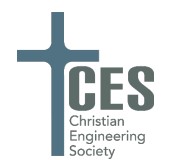Document Type
Paper
Abstract
This paper delves into both the hope and the hype surrounding next generation computing research as a critical pathway for creating true Artificial General Intelligence (AGI), a quest that has garnered substantial interest and investment from global entities ranging from governments to major corporations. At the heart of this excitement lies the potential of emerging technologies such as neuromorphic computing and spiking neural networks (SNNs) which promise a leap forward in computational power efficiency, miniaturization, and achieving human-level cognition. Neuromorphic computing refers to the design of computer systems inspired by the human brain's structure and function, while Spiking Neural Networks (SNNs) are a type of artificial neural network that purportedly mimics the way neurons spike and communicate in biological brains. Research into these technologies is grounded on the assumptions that our current understanding of brain functionality is correct, and that consciousness and cognition are emergent properties resulting from the complex interactions of the physical and chemical processes of the human brain. Many believe that these next generation computing technologies hold the key for bridging the gap between human-level cognitive capabilities and true AGI.
The discussion critically examines the scientific and philosophical underpinnings of these assumptions, focusing on the extent of our understanding of the brain and the implications of viewing the mind as a bi-product or emergent property of the brain’s physical and chemical processes. The paper then explores how these basic assumptions align with a materialistic worldview and contrasts this with a Christian perspective which posits a distinction between mind and body. Furthermore, the paper discusses the role of the Church and Christian higher education in contributing to this field, emphasizing the need for a balanced approach that integrates faith perspectives with scientific advancements and expectations. The paper concludes with the emphasis on the crucial role that the Church, in partnership with Christian higher education, plays in ensuring it has a relevant voice regarding the future of AI as our post-modern culture navigates the ethical and philosophical implications of emerging technologies that push the boundaries of our understanding of both artificial and human intelligence.
Creative Commons License

This work is licensed under a Creative Commons Attribution-Noncommercial-No Derivative Works 4.0 License.
Copyright
© 2024 Kenneth N. Oversby. All rights reserved.
Next Generation Computing and the Quest for Artificial General Intelligence (AGI): A Critical Examination from a Theological Perspective
This paper delves into both the hope and the hype surrounding next generation computing research as a critical pathway for creating true Artificial General Intelligence (AGI), a quest that has garnered substantial interest and investment from global entities ranging from governments to major corporations. At the heart of this excitement lies the potential of emerging technologies such as neuromorphic computing and spiking neural networks (SNNs) which promise a leap forward in computational power efficiency, miniaturization, and achieving human-level cognition. Neuromorphic computing refers to the design of computer systems inspired by the human brain's structure and function, while Spiking Neural Networks (SNNs) are a type of artificial neural network that purportedly mimics the way neurons spike and communicate in biological brains. Research into these technologies is grounded on the assumptions that our current understanding of brain functionality is correct, and that consciousness and cognition are emergent properties resulting from the complex interactions of the physical and chemical processes of the human brain. Many believe that these next generation computing technologies hold the key for bridging the gap between human-level cognitive capabilities and true AGI.
The discussion critically examines the scientific and philosophical underpinnings of these assumptions, focusing on the extent of our understanding of the brain and the implications of viewing the mind as a bi-product or emergent property of the brain’s physical and chemical processes. The paper then explores how these basic assumptions align with a materialistic worldview and contrasts this with a Christian perspective which posits a distinction between mind and body. Furthermore, the paper discusses the role of the Church and Christian higher education in contributing to this field, emphasizing the need for a balanced approach that integrates faith perspectives with scientific advancements and expectations. The paper concludes with the emphasis on the crucial role that the Church, in partnership with Christian higher education, plays in ensuring it has a relevant voice regarding the future of AI as our post-modern culture navigates the ethical and philosophical implications of emerging technologies that push the boundaries of our understanding of both artificial and human intelligence.

